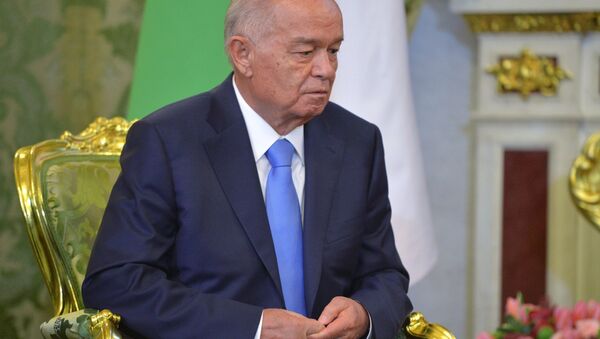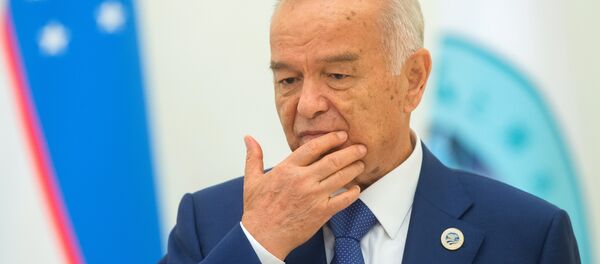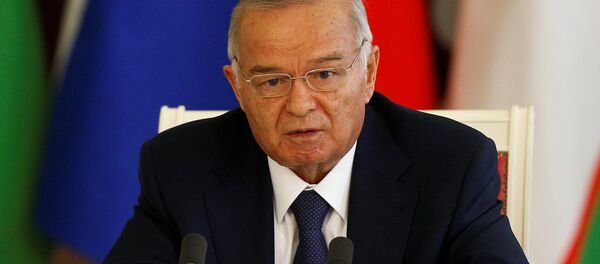"On September 2, 2016 an outstanding statesman and politician, President of the Republic of Uzbekistan Islam Karimov died after a severe illness", the statement said.
Russian President Vladimir Putin and Prime Minister Dmitry Medvedev expressed condolences to the Uzbek leadership over the death of Karimov. Medvedev will head the Russian delegation at the funeral of Karimov.
"His [Karimov's] departure from life is a great loss for the people of Uzbekistan, as well as the Commonwealth of Independent States and the countries-partners of the Shanghai Cooperation Organization. Islam Karimov was a prominent statesman, a true leader of the country. The most important milestones in the history of modern Uzbek state are associated with his name", the statement by Putin said.
Karimov was hospitalized early on Saturday after suffering a stroke. On Sunday, the Uzbek Cabinet said in a statement that Karimov's treatment would "take some time." Karimov's daughter Lola confirmed later on her Facebook page that her father had suffered a brain hemorrhage and was in intensive care in stable condition.
Earlier on Friday, the Uzbek government said that the president's condition had deteriorated further after another stroke.
His daughter Lola Karimova-Tillyaeva wrote in her Instagram account that "he has left us."
The first President of the former Soviet republic was born on January 30, 1938, to the family of a public servant in Uzbekistan's second-largest city, Samarkand.
After leaving school in 1955, he graduated from the Central Asian Polytechnic Institute (currently Tashkent State Technical University) and also the Tashkent Institute of National Economy (currently Tashkent State Economic University).
Between 1983 and 1986, he served as Finance Minister of the Uzbek Soviet Socialist Republic. He also held the post of First Secretary of the Central Committee of the Communist Party of Uzbekistan between 1989 and 1991.
Additionally, he was member of the Central Committee and Politburo of the Central Committee of the Communist Party of the Soviet Union in the early 1990s.
On March 24, 1990, Karimov was elected President of the Uzbek Republic during a session of the republic's Supreme Council. As of November 1 of that year, he also served as head of the republic's Cabinet of Ministers.
During the presidential elections in Uzbekistan that followed the collapse of the Soviet Union in 1991, about 86 percent of voters cast their ballots in favor of Karimov. On March 26, 1995, his presidential powers were extended until 2000. In 1999, he survived an assassination attempt.
On January 9, 2000, Karimov scored a landslide victory in presidential elections, during which he managed to obtain about 91.9 percent of the vote and was elected for a second term.
A national referendum on February 27, 2002 extended the presidential term from five to seven years, in a development that was followed by presidential elections on December 23, 2007, in which Karimov gained around 90.76 percent of the vote.
The next presidential elections were held on March 29, 2015, and once again Karimov won with an overwhelming majority, (about 90.39 percent) of the vote.
Prime Minister Shavkat Mirziyoyev will lead the late president's funeral committee, the statement noted.




